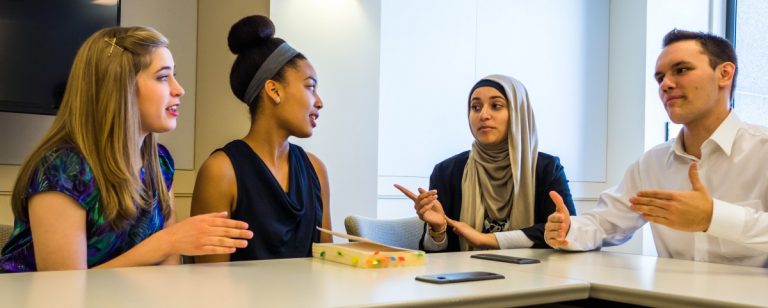
Diversity, equality and inclusion are values espoused by universities anywhere in the world.
And in an era of disruption, when the simple click of a mouse can lead to racial violence, it is often presumed incumbent upon schools to teach its young to appreciate and understand these values.
Across the world, higher learning institutions are doing just that; through special policies, committees, departments, initiatives and projects, students of all races, colour and creed are given opportunities to engage in activities that promote diversity in the campus setting.
Some schools, such as the University of California Santa Cruz and the University of Connecticut in the United States, for example, hire their very own diversity officers tasked with creating safe spaces for both teachers and learners, particularly the international student cohort who are seen as more vulnerable to incidents of racism and discrimination.
At UC Santa Cruz, one of diversity officer Sheree M. Marlowe’s duties is to handle reports made to the school’s Report Hate website.
“We try to educate the community, provide resources and refer to appropriate campus units for policy review and disciplinary action,” the former rights lawyer explained in an interview last year after her appointment.
"We need to change the way we think about diversity." Dr. Johnson, Chief Diversity and Inclusion Officer pic.twitter.com/Gc8sOZOKQL
— Unity College (@UnityCollege) August 23, 2017
Acknowledging the current surge of student activism worldwide and how some racially-charged protests have sparked tension leading to violence on campus, Marlowe expressed determination at investing more resources into initiatives encouraging dialogues.
“We can’t solve national issues on our campus, but we can have courageous dialogues.”
“Our job as a university is to make sure everyone can thrive academically and socially, and to create a safe and welcoming environment to the best of our ability,” she said.
Michigan State University’s Paulette Granberry Russell made a similar assertion earlier this year when remarking on the uproar over the Trump administration’s immigration reforms and changes to the Obama-era federal guidance on transgender students.
Russell, who is senior adviser to the school’s Office for Inclusion and Intercultural Initiatives director said lthough the developments have caused “stress and anxiety” for many, the school must not waver from its values on diversity.
“MSU regards its diversity as an asset. This is not a slogan. Because we have invested in being a diverse campus, we have a responsibility to all who live, learn, and work here to stay true to our core value of inclusivity,” she said.
Remarks by Marlowe and Russell denote a true belief in their institutions’ role in instilling a true spirit of inclusion and global-mindedness in their student body and faculty. Diversity and inclusivity are not just a pair of meaningless words or a social justice epithet; they are means for students to achieve a higher education in any part of the open-minded world regardless what their backgrounds are.
At Stanford University, diversity is directly attributed to the school’s stellar success. The university is currently ranked fifth among American universities and cites 33.5 percent of their graduates are international students.
The diversity programme they employ is not only helping the university excel in an academic sense but also in another important area – student satisfaction. This perfect mixture of inclusivity and stellar education resulted in Stanford being ranked top for student satisfaction in Forbes’ ranking of America’s Top Colleges in 2013.
"This conversation does not stop here." – Romeo Azondekon, Chief Diversity Officer #CentralPenn #Charlottesville pic.twitter.com/ALy15XL6Xa
— Central Penn College (@CentralPenn) August 15, 2017
Of course, it’s not just in America where diversity and inclusion are nurturing successful international communities.
Through their compressive Global Citizenship, Diversity and International Society, the Lap-Chee College, a residential college at the University of Hong Kong, has become a harmonious oasis consisting of hundreds of nationalities.
Apart from orientation and attentive tutoring, the society also holds activities such as film and documentary screenings, international and cultural presentations and LGBTQ Rights festivals. This type of extra attention and support given to the school’s international student body are what sets apart a truly diverse university from one that merely pays lip service to such values.
The outlook on campus diversity across the vast majority of the world is good. Colleges know the benefits of having international students in their enrollment. It promotes the university on a global scale whilst at the same time poaching the best students from their home country. For people seeking an adventurous step into academia in another country, these facts should be used to their advantage.
Foreign universities want an international cohort and their diversity and inclusivity programmes are a perfect reminder of that. Great academia is intrinsically linked with great diversity.
Hopefully, students can take great comfort in that.
Liked this? Then you’ll love these…
US: Elite public schools that rely on entry exams fail the diversity test
#SayMyName: Chinese students of Columbia University produce viral video to fight racism







